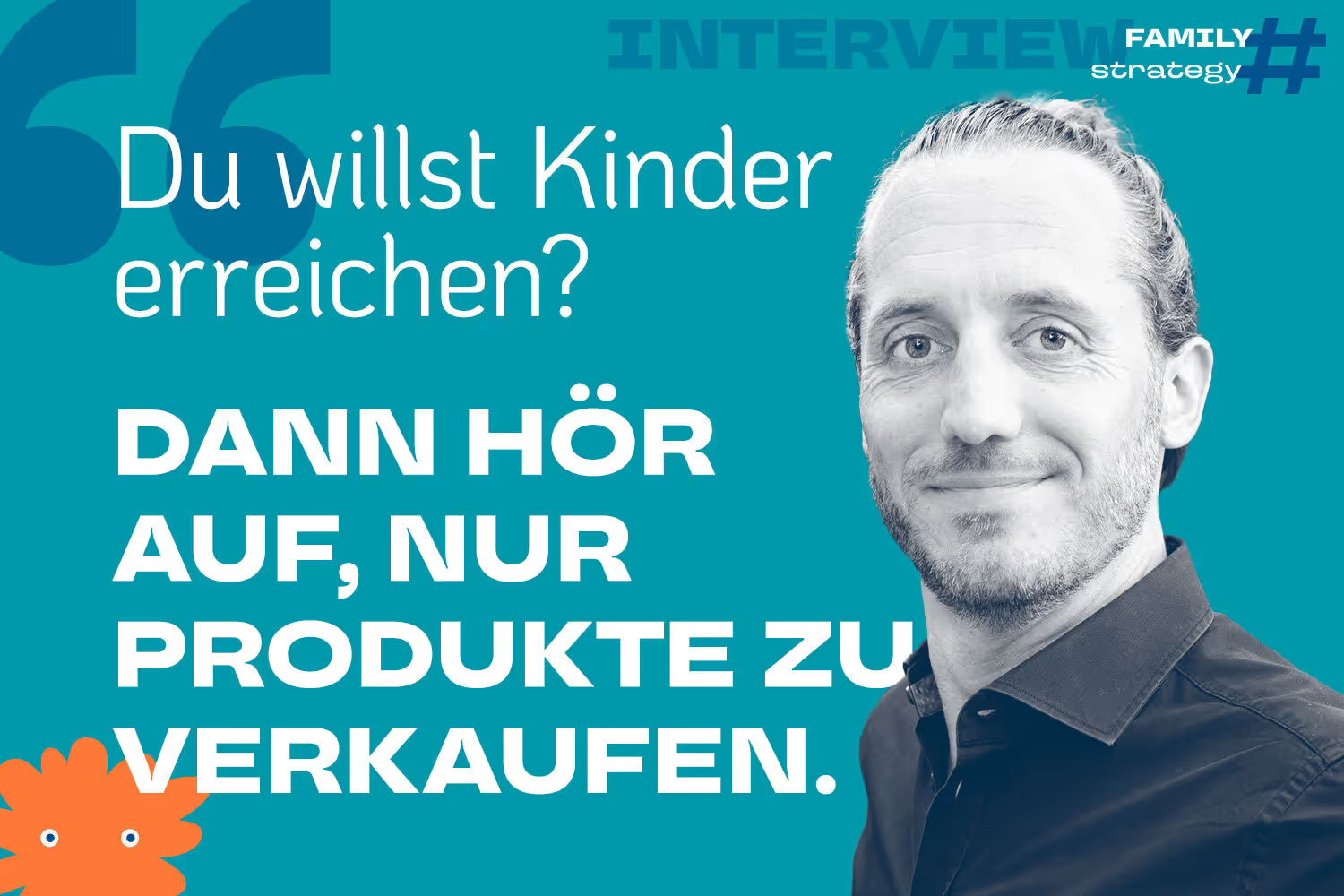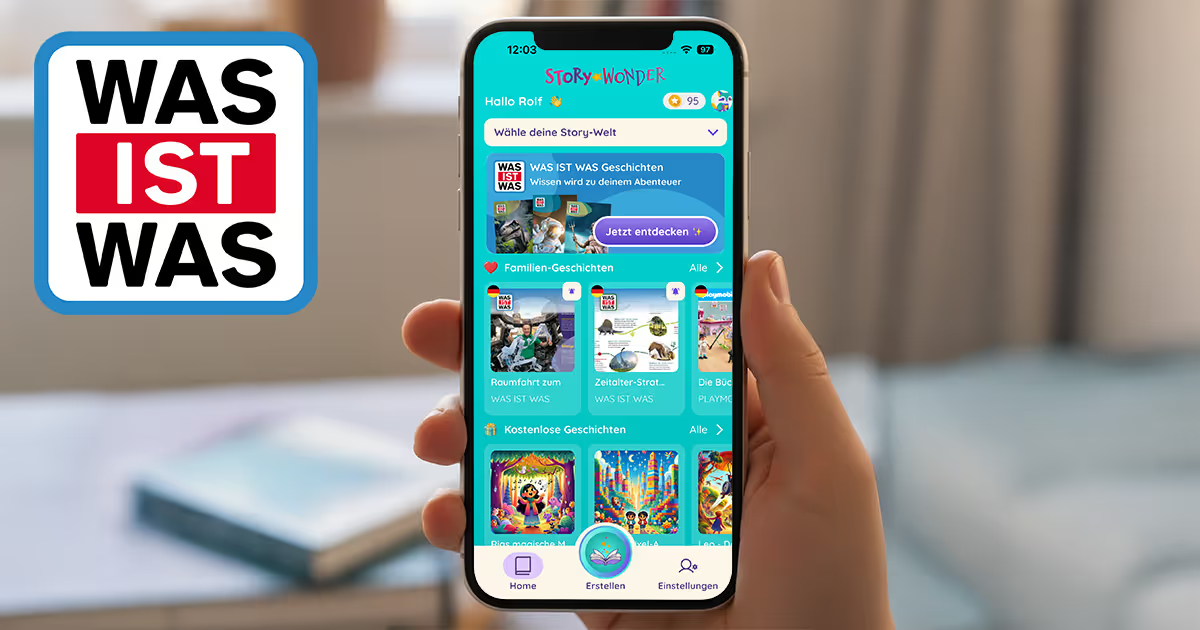Today a Jellycat-Cuddly toy, tomorrow a new pen from Legami And the day after tomorrow, it absolutely has to be the latest sneakers from a specific brand. Parents are all too familiar with this scenario: Children develop an astonishing affinity for brands at an early age and often exert considerable pressure to belong. But what is really behind this wish? Are brands just status symbols or do they fulfill a deeper psychological function in children's development?
In an insightful interview on Toggo Radio, presenter Bea spoke to our family marketing expert, Ingo Keßler, about exactly these questions. We transcribed the conversation for you to share the fascinating insights into the world of kids and brands — a must for anyone working in family marketing or simply wanting to understand what's really going on in the children's room.
Part 1: The basics — Why brands are so important for kids
Bea: A new Jellycat cuddly toy today, a new Legami pen with unicorn head tomorrow. Are your children also so brand-focused at the moment? Hey, it's Bea from Toggo Radio. So at home, the Legami pens are so up to date right now, they collect what it takes. The Jellycat cuddly toys aren't that much of an issue yet, but I hear it all around me. So I think it's only a matter of time before we get it too. And with me now is Ingo Keßler, an expert in family marketing. Ingo, tell me, why do children identify themselves so strongly with brands at a young age?
Ingo Kessler: Basically, brands for kids work in a similar way as they do for adults. Trademarks are an abbreviation for finding identity, expressing identity, and social orientation. And that starts, yes, at daycare age at four or five, that children develop an awareness of symbolic meaning. And one form of symbolic meaning that we just have is brands that are symbols of something more complex. And then children develop a brand understanding in such a way that brands can be a code for it: Who am I? How am I? Where do I belong? Am I like the others? Am I different from the others? Basically, brands for kids are like a compass that helps them find out who they are and where they belong.
Bea: Okay, I understand. What do brands do with their self-image and social status in class?
Ingo Kessler: Brands create something like invisible or implicit clubs. Anyone who owns the same brand belongs together in a way, and anyone who has something else belongs to another club. And something very exciting that you have now seen in recent years is: Since brands are a virtual currency anyway, it doesn't matter to children whether they are physical brands or digital brands. So my Roblox avatar, he can perform the same functions as a branded sweater or a branded sneaker.
Bea: Ok Things like Jellycat cuddly toys or Legami pens are currently in vogue among children. Why are such collectibles so attractive for children?
Ingo Kessler: Yes, there is another aspect of developmental psychology in children, namely actually: Collecting is incredibly important for children. It actually starts with stones and sticks in case of doubt. And that gives a feeling of accomplishment, but also control. And even when collecting, the aspect of social interaction should not be underestimated. So collecting always includes swapping or at least comparing, exchanging ideas, watching together. Well, yes, that's why collecting like this is actually part of child behavior anyway. Something like Jellycat works particularly well, of course, because it also includes a personality at a time. Basically, you don't just collect objects, you collect characters. This means that there is also the dimension of storytelling and games that goes even further on collecting.
Part 2: Alternatives to brand cult — How hobbies and fandoms create a sense of belonging
Bea: Branded products are like a social club where children feel they belong when they own the same brand as others. Ingo Keßler, an expert in family marketing, has just explained this to us. Hi, Toggo Radio here with Bea. And fortunately, there are also things that we don't have to buy and that our children can still identify with and belong to.
Ingo Kessler: Yes, absolutely. So they don't have to be brands, but basically fulfill a very similar function, including interests, hobbies or fandoms, as you call them. So because that too is then an expression of personality, taste, who I am and of belonging. So the Harry Potter fans and the Marvel fans or anime, manga — these are also things about which you identify yourself on the one hand and thus create a group membership, but also enable topics of conversation and social interactions.
Bea: That goes for gaming too. So am I playing Fortnite or Roblox now, for example? Or that also goes beyond: Which influencer do I follow on Instagram?
Ingo Kessler: But it also works with things like sport, right? The soccer boys who play soccer in the schoolyard at every break are just the group of soccer boys. Stuff like that. Or it could just be a hobby, right? So be in the school band, listen to K-pop, be Swifty. These are all things similar to or things that work in a similar way to brands that create group membership — i.e. “we are the soccer boys” — that also bring a certain self-expression to the children just learn: Who am I and how do I show who I am and what I am like. And that element of social connection and conversation topic simply.
Practical tips — The right way to deal with the desire for brands
Bea: Ok Ingo, if my child still really wants the new brand shoes, do you have any tips as a dad on how to combat this brand pressure?
Ingo Kessler: Well, I think, as with so many things, that's the solution — well, that's almost more of a private answer — but the solution is then more like finding the balance and talking about it, why does it have to be this brand? What does this brand do? What does this brand mean to you? But then don't discount the fact that this is actually important. So belonging is actually important in a child's development and that can therefore be an absolutely legitimate reason to want to buy Nike sneakers.
Bea: Yes, I absolutely understand that. And we've all been at that age, in the same situation and maybe we also know what it's like to absolutely want to belong. Thank you, Ingo Keßler, family marketing expert.
conclusion
The conversation with Ingo Keßler impressively shows that brands are much more than just products for children. They are a compass for orientation, a tool for building identity and a ticket to social groups. At the same time, interests, fandoms, and hobbies can perform exactly the same important function. For parents and marketers, this means taking the desire to belong seriously, but also recognizing the many ways in which children express their personality and find their place in the world. An authentic understanding of these dynamics is the key to reaching children on equal footing and engaging in responsible family marketing.









